

SVP, Head of legal | Dubai Islamic Bank (DIB)


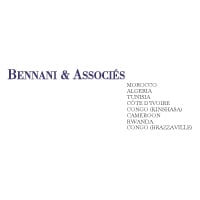


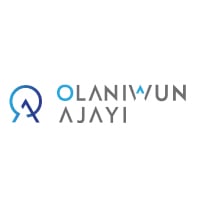
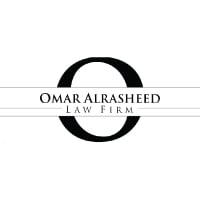
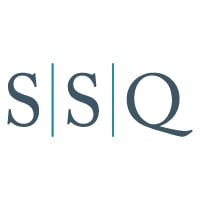
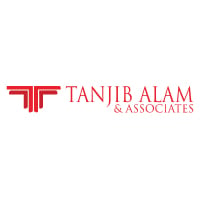


Dr. Osama Issaq Ismail Alhaj
SVP, Head of legal | Dubai Islamic Bank (DIB)
Career Biography
Dr. Osama Issag Alhaj is a seasoned legal expert with over 25 years of experience in the banking and finance sectors. As Senior Vice President and Head of Legal at Dubai Islamic Bank, he has played a pivotal role in shaping the bank’s legal and compliance framework. A qualified company secretary, he has demonstrated excellence in organizing board meetings, annual general meetings, and ensuring adherence to government regulatory requirements. Dr. Issag Alhaj has extensive expertise in handling high-stakes international business negotiations, drafting complex legal documentation, and facilitating multi-million-dollar transactions. A proactive leader, he has structured and streamlined the legal department, enhancing its efficiency and empowering his colleagues to achieve objectives within strict timeframes. His contributions extend to policy and procedure development, ensuring continuous improvement and effective implementation. Before joining Dubai Islamic Bank, Dr. Issag Alhaj served as a Senior Lawyer at the Islamic Development Bank (IDB) in Jeddah, KSA. During his tenure, he actively participated in numerous multinational Islamic conferences and gained deep insights into modern and innovative Islamic financial structures across Africa, Asia, and the Middle East.
Dr. Issag Alhaj holds a Ph.D. in Law, along with LLB (Bachelor) and LLM (Master) degrees in Law. He is also a Certified Shari’a Advisor and Auditor (CSAA) accredited by the Accounting & Auditing Organization for Islamic Financial Institutions (AAOIFI), Bahrain. His outstanding contributions to the legal profession have earned him multiple accolades. Under his leadership, the legal team at Dubai Islamic Bank achieved ISO 9001:2015 accreditation, reflecting his commitment to quality and international best practices. He introduced legal knowledge sharing sessions and legal newsletters that built organisational capabilities leading to an uplift in customer satisfaction within the bank.
What are the key projects that you have been involved in over the past 12 months?
Recently, I have been involved in several key cases and transactions that highlight my role in managing complex legal issues and contributing to strategic business decisions. I recently led the defence on a complex, multi-faceted international arbitration and several litigations that tested a wide-spread range of legal, regulatory, and commercial capabilities. In particular, my most recent engagement involved advising on a strategic dispute that spans across the banking, finance, real estate and construction industries. The matter required coordination with multiple stakeholders, including the UAE judicial authorities, as well as delicate contractual negotiations with key international counterparties. I was involved in spearheading this effort, ensuring that our external legal input was not only responsive to the fast-moving evolving legal and regulatory considerations, but also aligned with the commercial and risk appetite of the business. Under my leadership and sound and cooperative coordination, these matters achieved several critical outcomes: successful outcome in the litigation and arbitration proceedings, despite extremely stringent timelines, a favourable position that mitigated short and long-term exposure of the bank while preserving strategic alliances and objections.
How do you approach managing legal aspects during periods of instability or crises, and how does your legal strategy align with the broader business strategy to ensure the organisation’s resilience?
Managing legal issues during times of instability or crisis requires both strategic foresight and adaptability. My approach centres on preparedness, alignment, and continuous evolution to ensure that the legal function not only mitigates risk but also supports business continuity and resilience.
At the foundation is a comprehensive Business Continuity Plan (BCP) that clearly defines how legal matters will be handled during periods of disruption. The plan establishes contingency measures, assigns specific responsibilities, and designates alternate points of contact to ensure uninterrupted legal support even in the absence of key team members.
We also employ an E-Governance, Risk, and Compliance (E-GRC) framework to assess the legal risks associated with any crisis. This includes evaluating the impact on contractual obligations, statutory and regulatory compliance, and ongoing litigation. Such assessments help prioritise immediate actions while ensuring the organisation remains aligned with legal and ethical standards.
Equally important is the alignment of legal strategy with overall business objectives. Our legal team works closely with senior management to ensure that every legal decision supports the company’s strategic direction, enabling informed, risk-aware decision-making even under pressure.
Finally, we place strong emphasis on monitoring and adaptability. Crises are inherently dynamic, and effective legal management requires ongoing evaluation and recalibration of strategies. By continuously tracking developments in the regulatory environment and business landscape, we ensure our responses remain relevant, agile, and in step with the organisation’s evolving priorities.
In essence, legal resilience is built not only on risk management, but also on proactive planning, clear communication, and strategic alignment — ensuring that the legal function serves as both a stabilising force and a trusted partner during times of uncertainty.
What do you think are the most important attributes for a modern in-house counsel to possess?
The most important attribute is leadership with calm authority, particularly in the face of shifting legal, procedural and regulatory requirements and commercial pressures. It requires deep technical expertise, particularly when managing numerous claims and proceedings across a wide customer base.
How do you prioritise diversity and inclusion within your legal department, and what initiatives have you implemented to foster a more inclusive work environment?
I have also proactively organised 50 inclusive legal knowledge-sharing sessions that are open to all staff, ensuring equal access to information, encouraging diverse perspectives, and fostering a culture where everyone feels empowered to engage and contribute.
What is a cause, business or otherwise, that you are passionate about?
I am very passionate about supporting our internal customers to provide quality and up to date services with full legal knowledge of laws. Our legal team has been awarded the ISO 9001:2015 certification. It is a recognition of our commitment to consistently increase efficiency and quality across our department while adopting global best standards and practices.